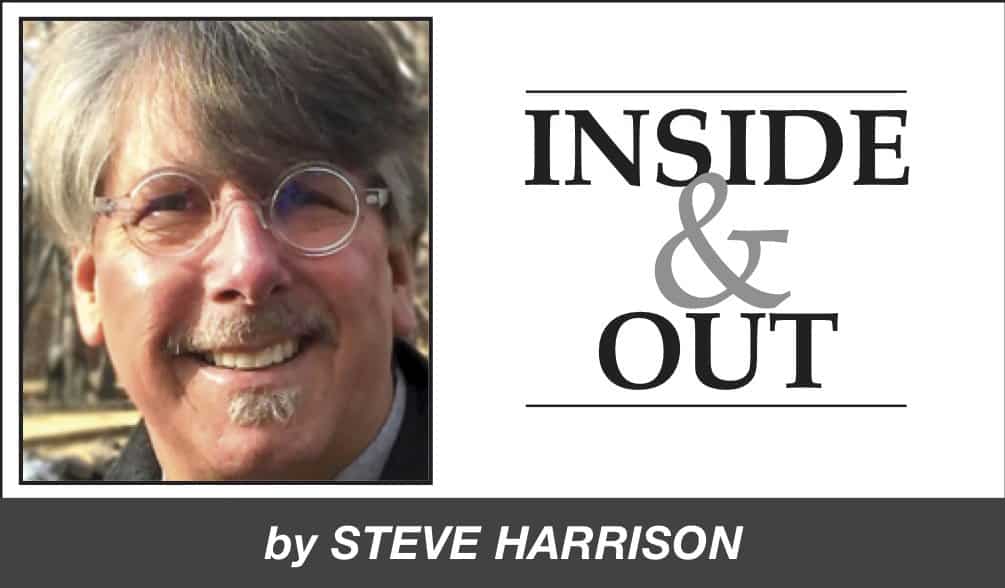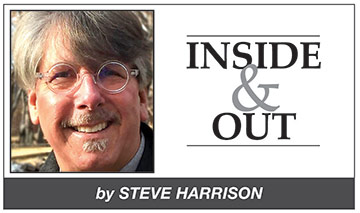Inside & Out: Teacher discovers not all lessons are learned in the classroom

By Steve Harrison
I’ve always believed education saves.
As a gay kid, I felt isolated during much of my youth. Sensing my difference, I stayed more aloof than I wanted during childhood and adolescence. I didn’t trade in the currency most young boys do: rough and tumble play, athletics, discussions of girls.
It was only within the organized, intellectual world of the classroom that I felt safe and began to feel equal. I couldn’t throw a baseball, but I could talk about ideas, short stories, and novels. I was able to write like I talked and had teachers who showed interest.
Once in college the ideas became more complex, more stimulating, more personal. I met good friends, my future husband, and found peace and acceptance in an intellectual tradition. I know I wasn’t alone; lots of other kids who didn’t quite fit or want to fit have relayed similar experiences.
As a teacher, I tried to treat everyone equally, and tried to make a place for the misfits. I tried to let my students know things got better, that education provided the keys to many opportunities and could save them from lives they didn’t want or feel comfortable living. Education provided hope. Education provided opportunity. Education opened doors.
With age, however, I learned it doesn’t always provide fulfillment, or happiness, or even satisfaction beyond the finishing of a paper, a good grade, or a final degree.
I was a good teacher, and I tried to provide my students with encouragement, a safe place, challenging ideas, an array of reading and writing opportunities, and even a chance to be creative. We expect a lot from our teachers, too much really. Eight years after my final day in the classroom I still have anxiety dreams about out-of-control students or discovering I wasn’t fully prepared.
Once I retired and had the freedom and time to indulge in other interests, I was able to find a home in the arts helping painters and collectors connect. I learned my traditional, formal education didn’t always provide the skills necessary to function in this new world.
Perhaps I was a slow learner. Maybe I was too smug in my campaign over many years of presenting academic success as salvation. I know I simplistically conflated success with happiness, education with success. I learned late, and probably to the detriment of some of my students and myself, that education can come in many different forms. Artists taught me that. Frequently, satisfaction comes in blazing one’s own trail and even breaking rules to do so.
Recently, John and I were having dinner at Victoria Gardens. After we ordered, a young waiter approached, looked down at me and said, “Woodcrest,” our mutual junior high. I remembered Frank and it was remarkable that 17 years later he remembered so many details from my eighth-grade English class.
He recalled an essay we did on phobias, his paper, and my comments. He was in honors classes throughout junior high and high school, and I couldn’t help but ask him if there was a plan for his future besides being a waiter. He said it was something he was thinking about, but he and his girlfriend had just bought a house, had a little girl, and waiting tables helped him be a stay-at-home dad. He was proud of his life, his love, and his accomplishments; and really, what else is there?
Not too long ago I heard someone say the best thing parents could provide their children was the ability to think and be flexible. I certainly understand that now in a way I never could when I was younger. Aging, it seems, is all about adjusting; when we are young we hold on desperately to our fragile vision of self. I would add teaching kids to believe in themselves and trust in their choices can be life changing and life altering.
As students and teachers head back to the classroom, I encourage both to take a minute to remember there is much more to life than this week’s test or curriculum standards that must be met. Success comes from being flexible and working to find a comfortable place in the world.
As teachers lost in the daily grind, we need to remember that so many of the things remembered from our classes aren’t what was intended. It is quite a responsibility.










0 Comments